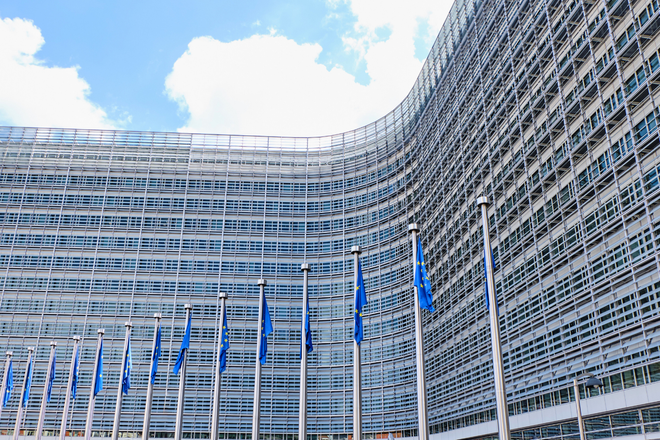Last year was difficult for all spheres of the economy worldwide. COVID-19 decimated the labour market, put retail chains under stress, or in the worst-case scenario, halted production completely. As a result of the crisis, the Slovak economy dropped by almost 5.2% in 2020. The question is, is it possible to restart the economy in 2021 ?
The Recovery and Resilience Plan is the answer to this unprecedented crisis in which the entireEuropean Union is now facing. Its main goal is to keep the economy of EU member states alive thanks to massive public spending. Last week the European Commission adopted a positive assessment of Slovakia´s Recovery and Resilience plan that is set to provide Slovakia with resources amounting to over 6 billion EUR by 2026. The funds are expected to be used for transforming the economy and contribute to its sustainable development rather than a one-time capital injection. The approved stimulus package will not only emphasise the knowledge of the business environment but also set proper rules for public procurement and state aid. The measures that enable the allocation of funds from the national Recovery and Resilience Plan must be in line with specific regulations applicable to state aid, pursuant to Articles 107 and 108 of the Treaty on the Functioning of the European Union (“TFEU”). However, there are certain exemptions and rules related to the provision of state aid, including general block exemptions and the provision of minimum aid determined and adopted by the European Commission itself. State aid is a broad and complex topic which should not be underestimated. On the contrary, transparency and eligibility requirements must be strictly adhered to by both providers and recipients.
As for state aid, the Commission first reacted to the pandemic on March 19, 2020, by adopting the temporary recovery instrument to help repair the immediate economic and social damage brought about by the coronavirus pandemic. It enables the member states to enjoy full flexibility when applying the existing state aid rules to boost the economy and mitigate the impact of the pandemic. Its validity has been extended to the end of 2021.
 Martina Filipová
Martina Filipová
Martina Filipová is the Managing Partner of the law firm BOOM & SMART Slovakia. Apart from her legal practice in the Slovak Republic, Martina is a member of the Liechtenstein Chamber of Lawyers, registered as an EU-based attorney. During her legal practice, she has acquired extensive experience in providing legal services across all fields of law, specialising in transactional legal counselling and advice on state aid related to EU funds. Martina is also an expert witness in the field of foreign legal relations registered in the Ministry of Justice of the Slovak Republic.
In December 2020, the Commission published eleven guiding templates for state aid as part of the Reconstruction Plan. This was related to several investment projects to assist the member states in designing their national recovery and resilience plans to be in line with EU state aid rules. The Commission is consulting member states on a possible extension of the General Block Exemption Regulation.
The General Block Exemption Regulation defines specific categories of state aid compatible with the EU Treaty and whether or not they fulfil certain conditions. Therefore, the member states are exempt from requiring prior notification and Commission approval. The Recovery and Resilience Plan of the Slovak Republic, in terms of its specific measures, expressly states the conditions of providing state aid and possible requirements for any further consultation and verification by the Antimonopoly Office of the Slovak Republic or prior notification to the Commission.
In light of the above - mentioned facts, I would like to draw your attention to any possible risks of providing state aid the Commission might declare as incompatible with the internal market. Further to the decision of the Commission, the provider of unlawful state aid is therefore obliged to collect from the recipient the amount of money proportionate to unlawful aid, including interest. The decision shall be enforced and carried out by the member state in compliance with the internal regulations.
Any other claims that might arise include compensation claims sought by competitors of the recipient of state aid and enforced against the member state as well as against the recipient himself. Certain questions may also be raised in terms of compensation claims of the recipient of state aid against its provider due to the damage caused. Even if the damage was caused by the recipient, the latest practice of the European Court of Justice confirms that the recipient of state aid has to make sure that they have duly notified the Commission about the state aid in compliance with EU legislation. As upheld by the European Court of Justice, a prudent entrepreneur should be in principle allowed to verify whether the conditions of state aid proceedings have been fulfilled. The current practice of the European Court of Justice, the Commission and national courts oppose the principle of compensation granted to state aid recipients. The main reason is that the possible compensation granted to the recipient would contravene the prohibition of state aid as the recipient of unjustified state aid would eventually end up in an advantageous position. However, the recipient’s right to compensation should be regarded as justified under exceptional circumstances, even if the member state expressly reassured the recipient that the measure is not regarded as state aid pursuant to the Art. 107 (1) of the TFEU or is subject to exemption from the notification obligation. The obligation to prove such a statement shall be borne by the recipient.
As mentioned above, the subsequent assessment of lawfulness of state aid that is either granted or accepted may have a considerable impact on both the provider and the recipient. Prudence and care shall be essential when allocating the funds from the Recovery and Resilience Plan of the Slovak Republic. To eliminate the above risks, I strongly recommend expert assessment of the granted aid in terms of its compatibility with the EU internal market. Similar rules applicable to public procurement are now subject to legislative changes, including any possible controls and amendments to this regulation. Do not hesitate to seek professional legal advice from our law office to avoid unnecessary damage or sanctions you might suffer. BOOM & SMART has extensive knowledge of the state aid and public procurement law, as we have assisted central authorities in the systematic setting of state aid rules applicable to the allocation of EU funds. We have so far taken part in assessing several enforcement rules for state aid and public procurement and their compliance with the EU law for both private and public sector clients.

About law firm
BOOM & SMART is an independent, client-centred boutique law firm operating in two jurisdictions, the Principality of Liechtenstein and the Slovak Republic. We have built a stable team of expert lawyers over 20 years, always putting our clients at the centre of our activities. With our knowledge of the local law environment, we cover all main legal areas required for our domestic and international clients and support them in all business activities. Our office in Vaduz specialises in the legal issues of investment law, alternative investment funds and wealth management.
Our team has also gathered remarkable knowledge and experience in European Law and issues related to eligibility or non-eligibility of state aid. We provide advisory services to managing bodies within the government of the Slovak Republic who act in the provision of funding from European Union funds. We also represent clients from the private and public sector in litigations, our main goal being to save their financial resources. We meet the highest international security standards, and as a result, we are one of the few law firms in the CEE region that have successfully implemented the ISO/IEC 27001.
This article has been brought to you by Boom & Smart.


